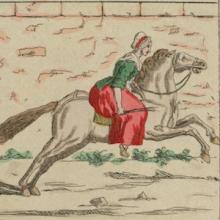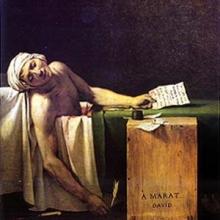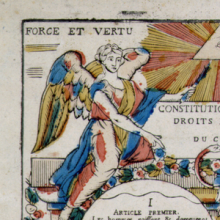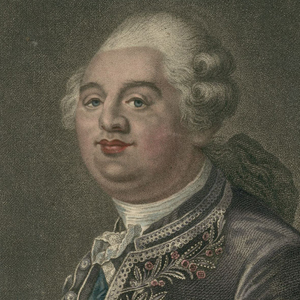Early Modern (1450 CE - 1800 CE)

Source Collection: Women and the Revolution
Women participated in virtually every aspect of the French Revolution, but their participation almost always proved controversial. Women's status in the family, society, and politics had long been a subject of polemics.

Source Collection: Paris and the Politics of Rebellion
The world was shocked by the swiftness and strength with which radicalism emerged in the first years of the Revolution. Interestingly, it is not so surprising that throughout the two centuries that have elapsed since then, labor has remained mainly arrayed on the political left.
The Petition of Right
In 1628, the position of Charles I of England had gone from bad to worse. Rash enterprises, lavish and illegal expenditure, and broken promises of better government had almost ruptured relations between the monarch and his subjects.

Liberty
Even before the French Revolution, the French had used a woman in a toga to symbolize liberty. By July 1789 this symbol had become quite common and would only grow more familiar over the revolutionary decade.

Source Collection: The Enlightenment and Human Rights
When the French revolutionaries drew up the Declaration of the Rights of Man and Citizen in August 1789, they aimed to topple the institutions surrounding hereditary monarchy and establish new ones based on the principles of the Enlightenment, a philosophical movement gathering steam in the eight

Reason
To contemporaries who subscribed to the Enlightenment principles, preceding the French Revolution, the term "reason" was to be contrasted to superstition.

French Constitution, Rights of Man and Citizen
This image of the Declaration of Rights of Man and Citizen includes a fascinating mix of symbols. By arranging the articles on tablets, the artist clearly meant to associate this document with Moses’ Ten Commandments.

Source Collection: Monarchy Embattled
Reality never matched the popular image of the all-powerful French King. Even Louis XIV, exalted by his own propagandists and many historians as the Sun King, never actually enjoyed that kind of authority. Theories of divine right, which linked the King to God, proved untenable for many.

Louis XVI distributes aid to the Poor
Here Louis XVI is portrayed as a benevolent king distributing alms to the poor, an appropriate action for the "Father of his people." However, his rich fur–clad outfit contrasts with the abject poverty of the common people, suggesting to those inclined to be critical that the King did not underst

Louis the Sixteenth, King of France and of Navarre
This portrait demonstrates Louis at the height of his power and authority on the eve of the French Revolution.